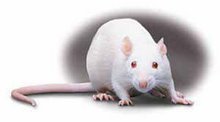But then there are all the studies of cow farts.
 Yes, you’ve probably heard about it, those jokes made about silly scientific studies, lab rats like myself shoving pipes up a cow’s derrière to measure the methane output from eating a bucket of feed. All those studies about the contribution of cattle fart methane to the ever-alarming global warming problem (like THIS study). Yes, global warming is real. Every scientist knows it. And every politician knows it, at least those whose political party name doesn’t begin with “R” and end with “epublican.” What is a self-respecting carnivore like me to do? Where’s the beef? I needs my cow flesh, thank you. Get in my belly!
Yes, you’ve probably heard about it, those jokes made about silly scientific studies, lab rats like myself shoving pipes up a cow’s derrière to measure the methane output from eating a bucket of feed. All those studies about the contribution of cattle fart methane to the ever-alarming global warming problem (like THIS study). Yes, global warming is real. Every scientist knows it. And every politician knows it, at least those whose political party name doesn’t begin with “R” and end with “epublican.” What is a self-respecting carnivore like me to do? Where’s the beef? I needs my cow flesh, thank you. Get in my belly!A soon-to-be-published paper in Animal Science Journal sheds a little more light on the problem:
Story: http://www.physorg.com/news103983167.html
As the article says, “A kilogram (2.2 pounds) of beef causes more greenhouse-gas and other pollution than driving for three hours while leaving all the lights on back home, according to a Japanese study.”
Yes, feeding your favorite bovine creates a noxious cloud of methane that winds up wafting up into the atmosphere and trapping solar heat in our world, causing accelerated polar ice melts, entire ice shelves to break off of polar ice caps, the destruction of high mountain glaciers, and alarming ice dams cracking, just to name a few outcomes. Think of it this way: every time a cow “gets the flutters” another few inches of coral bleaches, another chunk of glacier melts, and some poor tropical frog kicks the bucket. And it’s all because you and I had to have beef meatballs on our spaghetti.
Additionally, the process of producing and transporting all that feed and meat adds up too, in emissions due to gasoline and other power sources. From the article: “That one kilo (2.2 pounds) of beef also requires energy equivalent to lighting a 100-watt bulb for nearly 20 days. The energy is needed to produce and transport the animals' feed.”
There are all sorts of other crazy global warming solutions, but most aren’t very realistic beyond having our industry-happy government actually put more restrictions on gas-belching factories and trying to change the sorts of fuels we put in our cars away from the extremely-profitable market of war-ravaged crude oil. These things aren’t likely to happen in a speedy way, either. You don’t like paying a day’s take-home wages for a full tank of gas? Tough. Oil industry execs are laughing at you. So what can we do about the cow fart issue? Short of lighting the farts of every bull and heifer in the world, the best solution would be to stop eating meat entirely. That doesn’t sit well with people like, well, ME, who choose to use our canine teeth.
But there’s a solution for people like me. We don’t have to buy our beef or burgers from mass-market outlets like Safeway or McDonald’s, where the beef comes from cows that had been penned up by the hundreds in horrible conditions, fed cheap, “gassy” foods, slaughtered, frozen, and shipped from as far away as Brazil. You can, instead, invest a little bit of your time to find local stores and organic stores that sell meat produced locally, fed on grass and healthy feed, and most likely leaner and better for you anyhow, with no hormones or antibiotics.
As the PhysOrg.com article says, “A Swedish study in 2003 suggested that organic beef emits 40 percent less greenhouse gases and consumes 85 percent less energy because the animal is raised on grass rather than concentrated feed.”
So, to celebrate this, I’m going to consume some Kosher, non-hormone-injected beef hotdogs tonight. I’m not going to ask what parts of the cow went into them, but I can rest assured that the intestines that are now mashed up with other parts and wrapped in a conveniently-edible tube and put on my bun had 40% less cow farts flowing through them than their mass-raised cousins in Texas.
And when I’m done eating, I’ll be sure to hold my farts in.
Addendum (7/24/07): I just realized my last paragraph was inaccurate. Seems “kosher” hot dogs do not include any of the hind parts of a cow, including the intestines, and thus no natural casings, either. HERE is more info on the Hebrew National hot dogs I ate.
Image taken from HERE.



5 comments:
This post summarizes most of the very reasons why I switched to local, hormone free, grass fed beef. I don't want to be a vegetarian, and chicken gets boring after a while. So, when I eat beef, about once every week or two, I get the kind that I believe is best for the environment
I don't know if the same happens in the US but in Brazil, where some of those "hormonized" cows come from, hotdog sausages can have a lot of celluloses. That's right, celluloses. So, even though you save some cows, you kill some trees :(
Unfortunately most of you are tamed by chinese political method and Most of you forced yourself to believe that Chinese government is perfect.
And you all so fear to talk about China that you are willingly to leeck their ass.
There's no doubt, the dude is absolutely right.
Indeed these animals are dangerous to the earth there's no doubt about it!
Post a Comment